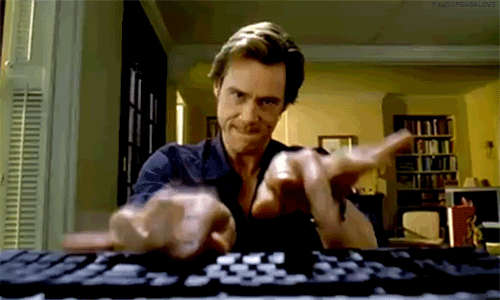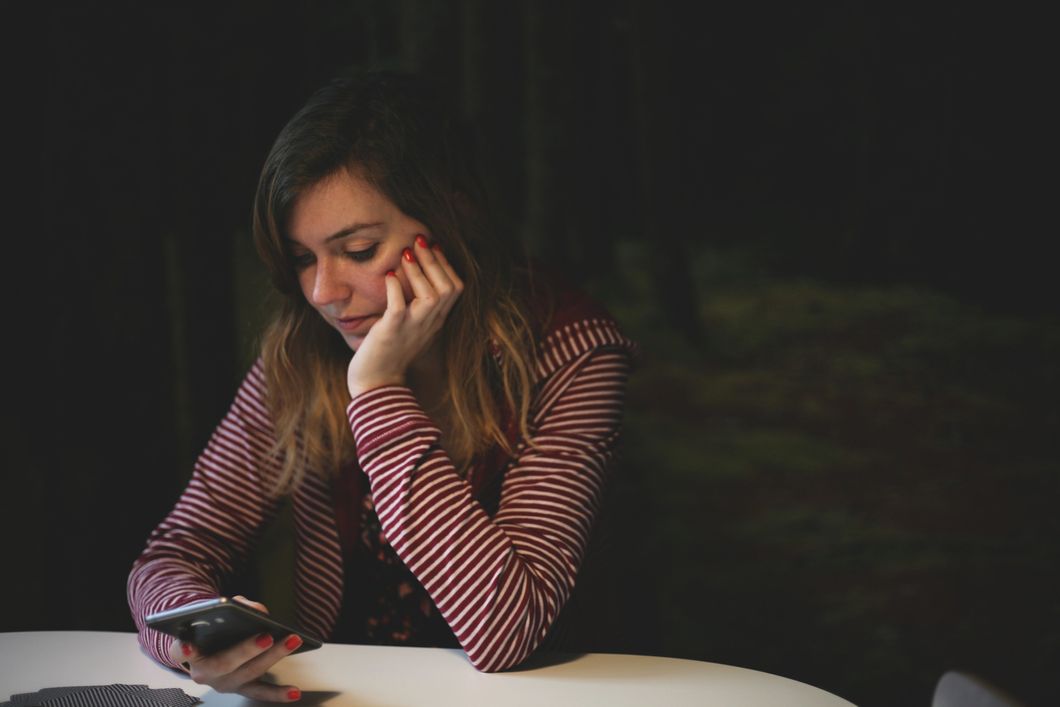Ever scroll in your feeds constantly comparing your life to someone else's highlights? Do you have those times where you are at an event or party and you want to get the perfect picture to document the occasion? More rather, do you agonize over documenting the whole thing and then completely forget about the reason you are there or forget to actually enjoy it? How about checking in on Facebook or Instagram constantly? What if you can't check? Do you feel anxious? Even after you posted something if you haven't garnered enough "likes" or comments, do you get upset or just erase the post?
If you said yes to many of these questions, you may want to look into how much time you are spending on Social Media and what it's doing to your brain. You may be putting yourself into a depression and not even realize it!
1. You're addicted to your smartphone and checking social media platforms.

A sign to know that you may be at risk of depression by social media? You're addicted when you constantly have to have your phone on, logged into several platforms, and checking the latest things to hit the internet.
2. Keeping in touch with family and friends by commenting on status updates instead of on the phone or in person.

If this isn't a big sign, I don't know what is.
3. Checking social media first thing in the morning and right before you fall asleep.

I think most of us are all guilty of this, even if it's just to set your alarm you may do a swipe and get into a rabbit hole that will keep you up for hours into the night, or in bed all day long.
4. Feelings of panic if you go several hours without checking social media.

If you're having feelings of dread from being apart from your phone for longer than a few hours, you may need a little bit of help.
5. Obsessing over the best way to "capture the moment" so you can post about it.

We all live in an age where we want the perfect picture to summarize or document what's happening that we forget to actually just be in the moment.
6. Often comparing yourself to people online.

One of the biggest things we probably don't realize is that we are comparing everyone else's highlight reels to our story. What we see online is usually filtered so heavily, that we put so much stock into going at a different pace than our own.
7. Getting upset if people don't comment on your updates.

If you get really irritated or sad when you post something that doesn't garner a lot of response, you may want to rethink who your post is for.
8. Taking down posts that don't draw a lot of reaction.

Much like not getting the response you want, you'll go straight to delete it as if it never happened. Or, it may be that it drew too much negative attention you don't want to associate yourself with.
9. Checking in on social media whenever you have a spare moment.

There is usually always a time and a place to check your social media, but if you're checking it at times where you should be doing other things, you may have an issue.
Some, if not all, of these habits, may be leading you into a depression hole that is hard to get out of. We get that not everyone who uses social media has a mental health issue. There are people who just really enjoy seeing photos of their loved ones or they like the latest viral pet videos. However, being too dependent on social media can be a problem for some and make mental health problems like anxiety and depression worse.
If you feel you are in crisis, please call the National Suicide Prevention Lifeline. It is a free, 24-hour hotline, at 1.800.273.TALK (8255). Your call will be connected to the crisis center nearest to you. If you are in an emergency, call 911 or go to your nearest emergency room. Counseling On Demand does not offer crisis counseling or emergency services.

















